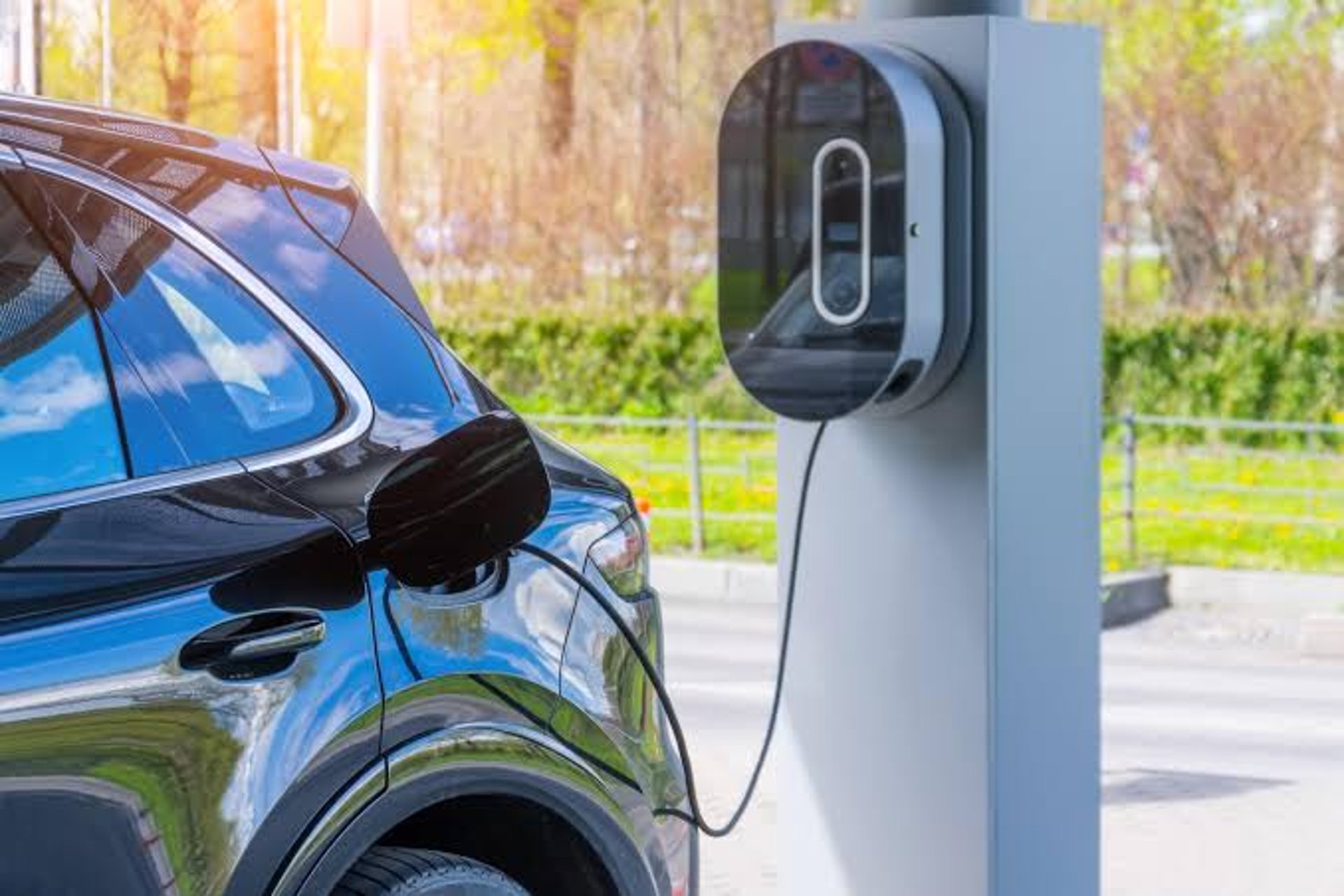
Electric Cars: A Deep Financial Look at Medium- and Long-Term Impacts
Omar Martir
4 min read
In recent years, electric vehicles (EVs) have increasingly emerged as a compelling option.
They promise cost savings, sustainability and cutting-edge technology.
But beyond their environmental appeal, it’s essential to understand how owning an EV can impact your finances over the medium and long term.
This article dives into why you might consider an EV and how that decision can affect your budget over time.
🌟 Advantages of Electric Vehicles:
Economy and Sustainability in Focus
Before we dive into the numbers, let’s review the main attractions of owning an EV:
⚡ Lower “Fuel” Costs
One of the biggest financial advantages is replacing gasoline with electricity.
For example, in Brazil driving 100 km might cost around R$ 50 in gasoline, whereas with an EV the same distance may cost around R$ 15.
That savings widens further when gasoline prices rise.
Globally, entities like the Argonne National Laboratory note that EV drivers can save more than US $2,000 annually compared to comparable internal-combustion vehicles.
🛠️ Reduced Maintenance
EVs are mechanically simpler: no oil changes, fewer engine components, fewer filters, no complex transmission work.
That means less service downtime and lower maintenance costs.
For example, the Australian government notes up to ~40 % less servicing cost compared to petrol/diesel vehicles.
💰 Tax & Regulatory Incentives
Many jurisdictions offer incentives for EVs: lower vehicle taxes, exemption or reduction of road-usage charges, preferential access in urban areas.
These benefits improve the total cost of ownership and can tip the balance in favour of EVs.
For developing countries, the World Bank reports that despite higher upfront costs, fuel-and-maintenance savings already make EVs economically viable in many markets.
🌿 Environmental and Societal Impact
Beyond the personal purse, EVs help reduce greenhouse‐gas emissions and local pollution.
According to Argonne, owning an EV can reduce tail-pipe and greenhouse‐gas emissions by more than half compared to a conventional vehicle.
📈 Financial Impacts Over Medium and Long Term
Let’s unpack how an EV can influence your finances as years go by.
⛽ “Fuel” Savings:
The Big Financial Star
Switching from gasoline/diesel to electricity can yield large operational savings.
If you drive ~15,000 km/year, and the difference in “fuel” cost is substantial, your annual savings might easily hit the equivalent of several thousand reais (or dollars) annually.
Moreover, being less exposed to volatile global oil markets means better predictability for your running costs.
Home charging (especially paired with solar panels) maximises the advantage.
🔧 Lower Maintenance:
Fewer Parts, Less Cost
With fewer moving parts, EVs tend to have lower repair and service demands.
Regenerative braking reduces wear on brake pads and rotors.
Studies indicate significant savings in maintenance over 5–10 years. For instance:
Argonne reports more than US $6,000 in lifetime repair & maintenance savings versus ICE vehicles.
In markets such as Australia, average service costs are ~40 % lower for an EV.
📜 Incentives and Tax Reductions:
Bonus Savings
Incentives vary by location, but they can substantially reduce your up-front cost or annual ownership costs.
Examples:
Exemption or reduction of vehicle taxes (such as IPVA in Brazil)
Reduced or waived licensing fees
Exemption from urban congestion or low-emission/rodízio schemes
These benefits help compensate for the typically higher purchase price of an EV versus a similarly sized combustion car.
📊 Resale Value & Depreciation:
A New Dynamic
Traditional internal‐combustion engine (ICE) cars tend to depreciate quickly.
With EVs, we are observing a changing dynamic:
Growing demand for EVs (driven by sustainability concerns) may help retain resale value
Advances in battery technology (longer life, lower cost) reduce concern about battery replacement
Expanding charging infrastructure increases practicality and thus attractiveness in the used market
Globally, research (e.g., by the World Bank) suggests that in many countries the operating cost savings already offset the higher purchase price over the vehicle’s life.
That said: the used EV market still has uncertainties (battery degradation, warranty transferability, regional infrastructure) to watch.
💡 Real-World Case Studies
Here are two practical examples to illustrate the financial impact:
Nissan Leaf: One of the early mass-market EVs.
Owners report far lower annual maintenance (e.g., R$ 1,500/year in some cases vs. ~R$ 4,000/year for a comparable ICE sedan).
Fuel savings can reach several thousand reais annually.
Tesla Model 3: A study of Model 3 owners in the US found that over five years total cost of ownership (TCO) could be ~20 % lower than that of a comparable gasoline sedan, thanks to low maintenance, high energy efficiency and good residual value.
These cases align with broader studies showing the financial viability of EVs across many markets.
♻️ Resale Value:
An Investment that Often Pays Off?
Though EVs tend to start at a higher purchase price, several factors support stronger resale value:
Growing demand for used EVs as awareness and infrastructure improve
Advances in battery technology, extending useful life and reducing battery replacement worries
Being more “future-proof” in a regulatory environment that increasingly favours low-emission vehicles
That said: resale outcomes depend heavily on model, brand, battery guarantee, regional charging infrastructure and used-vehicle market maturity.
🤔 Key Considerations Before You Buy an EV
Buying an EV is a meaningful investment decision—think it through carefully:
🔌 Charging Infrastructure
Verify accessible public charging stations along your usual routes and whether you can install a home charger (or have access at your workplace).
Home charging is typically the most convenient and cost-effective.
Tools like PlugShare can help you map charging points.
🛣️ Daily Use and Range Needs
Match the vehicle’s real-world range to your daily driving habits (including occasional long trips).
“Range anxiety” is real but less of an issue with modern EVs; still, check the model’s usable range under local conditions.
💡 Electricity Cost & Tariffs
Although electricity is generally cheaper than gasoline, rates vary by time-of-day and region.
Charging at off-peak times or with solar panels can maximise savings.
🛡️ Insurance & Specialized Maintenance
Some EVs (especially premium/luxury ones) may have higher insurance premiums or require specialised repair services.
Factor in those costs.
🔋 Battery Lifespan & Warranty
Check the manufacturer’s battery warranty (often 8 years or more) and battery degradation rates.
A strong battery warranty is a key value-preservation factor.
🧭 Model & Brand Reputation
Pick a reliable brand with good service network, solid residual value prospects and strong warranty support—these will ease resale concerns.
✅ Conclusion:
Is an Electric Vehicle Worth It?
For many drivers, the significant savings in “fuel” and maintenance, combined with incentives and improving resale potential, make EVs a financially smart choice over the medium to long term.
Add to that the sustainability benefits and advancing infrastructure, and the case becomes even more compelling.
If you are considering changing your vehicle and your priorities include economy, innovation and sustainability, then exploring an EV is well worth your attention.
Evaluate your driving habits and local infrastructure—and you may discover that buying an EV is not just good for the planet, but also a smart move for your wallet.
For further explorations of finance and investment topics, stay tuned here at Segredos do Mercado (or your blog) and follow relevant channels on social media.
Have you already thought about how an EV could fit into your lifestyle and budget?
📌 Authoritative Links for
(further reading)
EV Facts – Argonne National Laboratory:
https://www.anl.gov/ev-facts/benefits
Benefits of Electric Vehicles – Australian Government Energy Guide:
https://www.energy.gov.au/electric-vehicles/electric-vehicle-basics/benefits-electric-vehicles
Economic viability in developing countries – World Bank:

